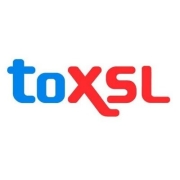Mobile Development Platforms enable seamless creation of mobile apps, offering tools and frameworks for both Android and iOS platforms. They aid developers in building, testing, and deploying apps efficiently, enhancing productivity and reducing time to market.
Renowned platforms like Xamarin and React Native allow developers to utilize shared codebases across operating systems, simplifying cross-platform development. These solutions provide robust APIs and extensive libraries, supporting rich, native user experiences and high performance. The integration capabilities with cloud services and third-party APIs are often highlighted by developers, ensuring scalable and maintainable app solutions.
What are the critical features?Financial services leverage these platforms for secure and scalable mobile apps that handle large data sets. Healthcare industries use them to develop applications complying with regulatory standards. Retail businesses create engaging customer apps for in-store and online transactions.
Enabling faster app development, Mobile Development Platforms allow businesses to rapidly respond to market demands. They empower developers to innovate with less risk and greater flexibility, aiding organizations in meeting consumer expectations efficiently.
| Product | Market Share (%) |
|---|---|
| OutSystems | 12.0% |
| Mendix | 10.4% |
| Temenos Quantum | 7.4% |
| Other | 70.2% |






































It’s a toss-up. Both Kotlin and Java are considered the best programming languages for mobile app development. Kotlin is most commonly used to develop android applications while Java is most commonly used for developing enterprise applications.
Kotlin is one of the programming languages used by top companies for Android app development. It’s a statically typed programming language that has a concise code syntax that makes it one of the most popular choices for Android app developers. It runs on the Java Virtual Machine (JVM) and can be compiled to JavaScript or native code.
Java is the most widely used language for creating Android apps due to its simplicity and accessibility to JavaScript learning resources. With Java, you can use whichever operating system you are most familiar with, because Java is compatible with many different platforms.
A mobile app is developed by following these steps:
Mobile app development tools are the software components used to build mobile applications. Mobile app development tools enable us to create native mobile apps as well as cross-platform mobile apps with varied functionality. For businesses that cannot afford to hire a developer, these solutions also assist in the development of codeless mobile apps.
Mobile app development tools can be broadly categorized into native app development and cross-platform app development tools.
Cross-platform mobile development is the designing of software apps that are compatible with multiple mobile operating systems. Cross-platform apps employ a variety of methods to support many operating systems or app environments for a single program or product. Cross-platform app development essentially means that an app or product should function as intended across a variety of operating systems rather than depending just on one particular digital habitat. Several accommodations are essential for cross-platform app development.
Some development experts compile several versions of the same app for different operating systems, some use sub-tree files and app programming interfaces (APIs) to modify a piece of software to fit multiple OS, while some build an abstract layer at multiple levels to bypass the software environment dependency.
Typically, cross-platform apps are less efficient than their native app counterparts, because they require support systems and redundant background processes to implement the app features.
However, most of the time, the downsides of cross-platform app development are worth dealing with because cross-platform mobile development allows software developers to push their apps to the market quicker and to a wider audience at a relatively lower development cost.
The reasons for using cross-platform mobile development include:
Choosing cross-platform Mobile Development Platforms allows you to use a single codebase to deploy applications across multiple operating systems. This approach significantly reduces development time and costs while ensuring a consistent user experience. By investing in a cross-platform strategy, you streamline maintenance and updates, as changes can be quickly propagated across all platforms without separate modifications.
How does React Native compare to native development?React Native offers a compelling alternative to native development by enabling you to build mobile applications using JavaScript and React. With React Native, you can write components that run efficiently on both iOS and Android. While it may not fully utilize all native features, it offers faster development cycles and code reusability, making it a popular choice for businesses seeking efficient app delivery.
What are the security considerations for Mobile Development Platforms?When working with Mobile Development Platforms, ensuring data security and application integrity is crucial. Implementing secure authentication methods, data encryption, and regular security assessments can protect against vulnerabilities. Additionally, staying informed about platform-specific security updates and guidelines is essential to safeguard your app from evolving threats.
What is the role of cloud integration in mobile app development?Cloud integration enhances mobile app development by enabling scalable backend systems and data synchronization across devices. By leveraging cloud services, you can offload data storage and processing, providing seamless user experiences and real-time updates. This approach simplifies deployment and maintenance while allowing you to focus more on the app's features and functionality.
How do Mobile Development Platforms support app monetization?Mobile Development Platforms offer various tools and services to facilitate app monetization. You can integrate in-app purchases, advertisements, and subscription models to generate revenue. Choosing the right monetization strategy can depend on your target audience and app category, ensuring that it aligns with user expectations while maximizing profitability.